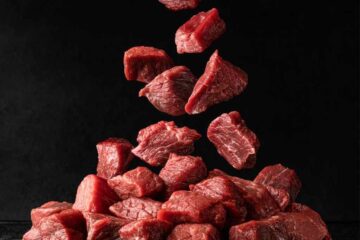What to Consider when Looking for a Meat Supplier

A meat supplier is a company that provides meat products to other businesses, such as restaurants, supermarkets, and meat processors. They may specialize in certain types of meat, such as beef, pork, poultry, or lamb, or they may offer a wide variety of meats.
The supplier should be able to provide information on how their meats are sourced, such as the specific farms or ranches they come from, as well as the type of breeding, feeding, and living conditions for the animals. Carniceria Prime Meat Market of Houston will be able to provide information on the quality of their meats, including the cuts available, marbling, fat content, and any certifications they have received.
When looking for a meat supplier, there are several factors to consider to ensure that you are getting high-quality, safe, and ethically sourced products:
Quality
A meat supplier’s quality should be evaluated based on several factors, including freshness, taste, texture, and overall appearance. It is also important to ensure that the meat has been sourced ethically and sustainably and meets all food safety regulations. Additionally, verifying that the supplier has a good reputation and a track record of providing high-quality meat is a good idea.
Safety
The safety of the meat should be a top priority when evaluating a meat supplier. This includes ensuring that the meat is free from harmful bacteria or contaminants and has been handled, stored, and transported in a way that meets all food safety regulations. It is also important to verify that the supplier has a robust food safety program and that they regularly test their products for safety.
Additionally, looking for certifications such as HACCP or SQF demonstrates that a supplier has been independently audited and meets certain food safety standards.
Sourcing
Sourcing is an important factor to consider when evaluating a meat supplier. This includes ensuring that the meat has been ethically and sustainably sourced and that the animals have been treated humanely. It is also important to verify that the supplier sources its meat from reputable and trustworthy farms, ranches, and processors.
Additionally, looking for certifications such as organic, grass-fed, or humanely raised is a good idea, demonstrating that the supplier meets certain animal welfare and environmental standards.
Sourcing transparency is also important, as it allows you to trace the meat back to the farm, or know how the animals were raised, what they were fed, and so on; this will give you a fair idea about the quality of the meat.
Traceability
Traceability is the ability to trace the movement of a product through the supply chain, from the farm or ranch where it was produced to the point of sale. This is an important aspect of food safety and quality control, as it allows for the rapid identification and recall of potentially unsafe products.
When evaluating a meat supplier, it is important to ensure that they have a robust traceability system. This should include detailed records of where the meat came from, how it was handled and processed, and where it was sold. The supplier should also be able to provide this information to you upon request.
In conclusion, when looking for a meat supplier, it is important to consider several factors such as quality, safety, sourcing, and traceability. This will help ensure you get the best product possible for your business or personal consumption.













